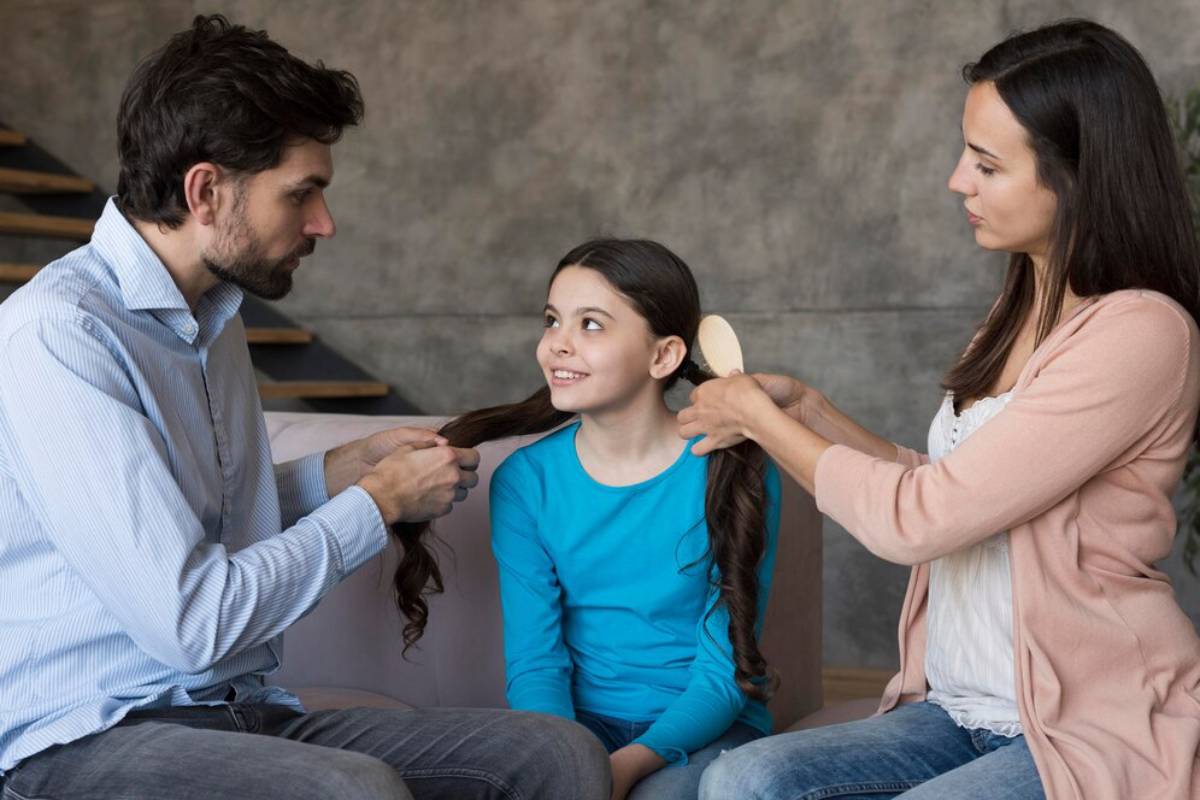The Parenting & Family Blog

Fostering a Growth Mindset in Children
Why Growth Mindset Matters in Childhood
In today’s fast world, adaptability and resilience are key to success. So, helping children develop a growth mindset is now an essential part of positive parenting. A growth mindset, created by psychologist Carol Dweck, means believing that you can improve your abilities and intelligence. You do this through hard work, persistence, and learning from your mistakes. This is different from a fixed mindset. In a fixed mindset, kids think their skills are set and can’t change.
Understanding and nurturing a growth mindset isn’t just educational jargon. It has profound implications for child development. When kids take on challenges and keep going after setbacks, they do better in school and life. They learn to see effort as a way to succeed. Positive parenting techniques can help kids be confident, curious, and lifelong learners.
This blog looks at the main ideas of a growth mindset. It discusses how it affects child development and offers practical tips for parents to help their kids build this strong mindset.
Understanding the Growth Mindset
What Is a Growth Mindset?
A growth mindset is the understanding that intelligence, talents, and abilities can grow with time and experience. Kids with this mindset view challenges as chances to grow. They tend to stay motivated even when they face failures.
Key characteristics of a growth mindset:
- Belief in the power of effort
- Resilience in the face of setbacks
- Openness to feedback and constructive criticism
- Willingness to take risks and learn from mistakes
In contrast, a fixed mindset might sound like:
- “I’m just not good at maths.”
- “I’ll never be able to do that.”
- “If I fail, it means I’m not smart.”
Growth Mindset vs. Fixed Mindset: The Impact on Children
Children with a growth mindset tend to:
- Embrace challenges
- Value learning over appearance
- Recover quickly from failures
- Develop grit and perseverance
These traits are key to healthy emotional growth and success in school, especially in the early years.

The Role of Parents in Developing a Growth Mindset
Why Parenting Matters
Parents are children’s first teachers and role models. Parents’ language, attitudes, and behaviours can greatly shape how children view their own skills.
Common Parenting Pitfalls to Avoid
- Praising intelligence instead of effort: Saying “You’re so smart!” may sound positive, but it reinforces a fixed mindset. Try “You worked really hard on that!”
- Shielding children from failure: Protecting kids from struggle robs them of growth opportunities.
- Overemphasising achievement: If kids focus only on results, they may fear failure and overlook effort and progress.
Positive Parenting Approaches That Foster Growth
- Encourage effort and strategy: Highlight how persistence and creative thinking lead to success.
- Model a growth mindset: Talk about your own learning processes and how you overcome challenges.
- Use mistakes as learning tools: Help your child reframe errors as a natural part of growth.
Everyday Practices to Promote a Growth Mindset
Use Growth-Oriented Language
The words we use shape beliefs. Simple changes in language can nurture a growth mindset:
Instead of:
- “You’re a natural at this.”
- “You got it wrong again.”
Try saying:
- “You’ve improved so much with practice.”
- “Mistakes are part of learning. Let’s figure it out together.”
Promote Process Praise
Focus on what your child did to succeed:
- “I noticed you kept trying even when it was hard.”
- “Great job using a new strategy!”
Set Challenges
Encourage activities that push your child slightly outside their comfort zone:
- Try puzzles, STEM kits, or art projects.
- Learn new skills together, like baking or a musical instrument.
Create a Safe Environment for Failure
Let your child know that failure is part of growth:
- Share stories about your own setbacks.
- Celebrate effort and learn from mistakes.
Growth Mindset in Education

Partnering with Schools and Teachers
Collaborate with teachers to reinforce a growth mindset at school:
- Ask about how your child responds to setbacks.
- Support homework as a space to experiment and explore.
- Celebrate progress rather than grades.
Encourage Curiosity at Home
Help children take ownership of learning:
- Let them choose books, documentaries, or science experiments.
- Support independent projects.
- Encourage questions and exploration.
Challenges Parents Might Face
Dealing with Resistance
It’s normal for children to push back when trying something difficult. Stay patient and supportive. Remind them that all learners face struggles.
Managing Your Own Mindset
Check in with your own beliefs. Are you modelling a growth mindset? How do you talk about your own mistakes and efforts?
Finding Time in a Busy Schedule
Even with packed routines, small moments matter. Five minutes of praise, encouragement, or problem-solving together can reinforce big lessons.

Real-World Success Stories
Case Study 1: Mia Learns to Read
Mia, age six, struggled with reading. Her parents stopped saying, “She’s not a reader,” and instead started saying, “She’s still learning to read.” They praised her efforts, read with her daily, and celebrated small improvements. Within months, Mia gained confidence and started choosing books on her own.
Case Study 2: Tom and the Science Fair
Tom, 10, felt discouraged when his science project didn’t work as planned. Rather than fixing it for him, his mum encouraged him to think about what went wrong and try a new approach. Tom’s second attempt not only succeeded but earned him a school award.
Expert Insights on Growth Mindset
Dr Carol Dweck says the secret to a growth mindset is teaching kids that their brains get stronger with use. Neuroscience supports this idea: when kids think their brains can grow, they do better in school.
Tip from Educational Psychologist:
“Don’t just tell kids to try harder. Help them reflect on what strategies they used and how they might change their approach.”
Growth Mindset Activities for Kids
1. “Yet” Statements
Encourage your child to add “yet” to limiting beliefs:
- “I can’t ride a bike…yet.”
- “I’m not good at fractions…yet.”
2. Mistake of the Day
Make it a fun habit to share one mistake everyone made and what they learned.
3. Growth Mindset Jar
Write down daily examples of effort and perseverance and add them to the jar. Reflect on them together weekly.
Encouraging Sibling and Peer Support
Model collaborative learning:
- Let siblings or friends tackle a challenge together.
- Promote kindness, patience, and encouragement.
- Avoid labelling children as “the smart one” or “the sporty one” — all kids can grow.
Reinforcing Growth Mindset Over Time
Stay Consistent
Keep reinforcing messages about effort, resilience, and progress.
Adjust as Children Grow
Teenagers need slightly different messages — focus on responsibility, self-reflection, and long-term goals.
Celebrate the Journey
Celebrate the process of learning. It’s important, whether it’s tying shoes, solving algebra, or managing emotions.
Conclusion: Helping Children Believe in Their Potential
Fostering a growth mindset in your child isn’t about pushing them to be the best. It’s about showing them that their abilities can change. They are not fixed; they can grow and improve with effort. As a parent, your words, actions, and support can deeply influence your child’s belief in themselves.
Encourage effort, not just results. Praise progress and show resilience. This way, you help your child thrive in school, relationships, and life.
Let’s raise children who are not afraid to fail, who bounce back stronger, and who never stop learning.
Ready to start building your child’s growth mindset? Try one of the activities above today and see the difference it makes!









